The City Council voted Thursday to raise the value of municipal rent subsidies for homeless New Yorkers, which advocates say will help thousands of individuals and families secure permanent housing and leave shelters—despite some flaws in the specifics of the legislation.
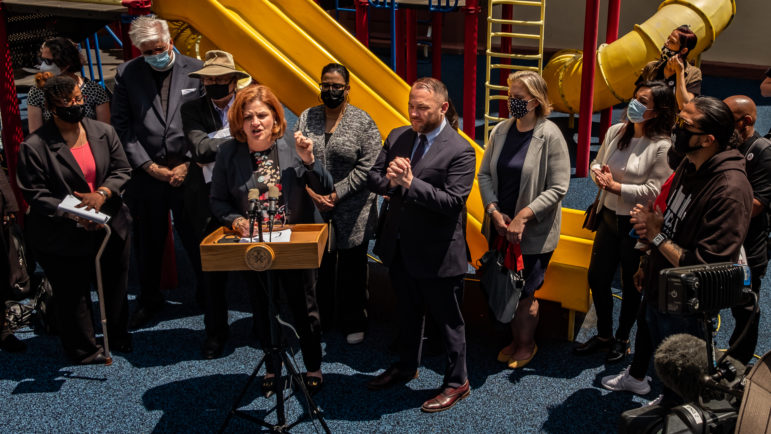
Adi Talwar
Council Speaker Corey Johnson, former Speaker Christine Quinn and housing advocates at a press conference Tuesday announcing their plans to vote on the long-awaited housing vouchers bill.The City Council voted Thursday to raise the value of municipal rent subsidies for homeless New Yorkers, which advocates say will help thousands of individuals and families secure permanent housing and leave shelters—despite some flaws in the specifics of the legislation.
New Yorkers experiencing homelessness and their allies have for years said that the existing subsidies, known as CityFHEPS vouchers, trail actual market rents by a wide margin, leaving voucher-holders unable to find an apartment priced low enough to afford.
The new measure, known as Intro. 146, would link CityFHEPS values to roughly the rates of Section 8, a federal program regarded as the gold standard of housing subsidies. In New York City, Section 8 covers one-bedroom apartments priced at $1,945 per month and two-bedroom apartments priced at $2,217. In contrast, CityFHEPS vouchers are capped at $1,265 a month for a single adult and $1,580 for a family of three or four — too low to afford an average two-bedroom apartment in any neighborhood in the city, according to a review of rental prices by real estate website RentHop. Voucher-holders pay a “household share” — a portion of their income, up to 30 percent — and the subsidy covers the rest of the the actual monthly rent.
Bill sponsor Councilmember Stephen Levin has said the measure will help voucher holders access nearly 72,000 additional apartments across the city, based on an analysis by StreetEasy. Levin first introduced a version of Intro. 146 in 2018.
“This is going to be an important bill in the lives of many New Yorkers,” Levin said during the council vote Thursday. “My hope is this will give people the opportunity to have a solid roof over their heads for them and their families.”
The vote comes amid a yearslong homelessness crisis in New York City, with 8,833 families and 15,312 children staying in a Department of Homeless Services (DHS) shelter May 25, according to the most recent city shelter census. Thousands more live in domestic violence shelters or in unstable housing where their names do not appear on a lease or deed. The number of families in DHS homeless shelters has dropped over the past year, but could once again surge as pandemic-related eviction protections expire. Some street homeless New Yorkers and people at risk of becoming homeless can also qualify for the CityFHEPS program.
Mayor de Blasio has resisted the voucher value increase without a concurrent hike to a similar state subsidy, telling NY1 Tuesday that he did not want the city to create “an inadvertent unfunded mandate on ourselves.” He cannot veto the legislation, which passed the Council 46-2.
A DHS spokesperson said Thursday that the agency supports raising the voucher value but urged the state to do the same.
“At the city level, we will continue to invest in proven-successful programs to help even more individuals and families find available apartments that work for them, and we hope the state will step up in kind,” the spokesperson said.
Though the vote earned praise from an array of homeless service providers, real estate groups and elected officials, many advocates and people experiencing homelessness pointed out some flaws and last-minute changes they were not aware of when they celebrated Council Speaker Corey Johnson’s decision Tuesday to bring the legislation to a long-awaited vote.
A previous version of the bill, known as Intro. 146 B, stated that households can renew their voucher until their rent equates to 30 percent of their income.
The final version of the bill links renewal eligibility to a specific income threshold present in the existing program. Levin said the city could not change the income rules without approval from the state, which would further prolong the vote.
Under the final legislation, households lose eligibility after five years if they earn more than 250 percent of the federal poverty level, equal to $32,200 for a single adult and just under $55,000 for a family of three. Advocates say that criteria will force participants, especially single adults, to choose between a living wage and retaining their housing voucher after the fifth year of eligibility.
“It’s bad policy,” said Sarah Wilson, an organizer with Neighbors Together and a formerly homeless New Yorker who could not find a landlord willing to take her CityFHEPS subsidy. A voucher holder who earns above the eligibility limit would risk losing their voucher and paying nearly their entire net income on rent after five years, Wilson added.
Advocates also say the legislation will allow the city to adjust the voucher value between 90 percent and 110 percent of Fair Market Rent rather than explicitly locking it into the Section 8 rate.
Despite those changes, activists and organizers who fought for years to pass the bill said the measure was a crucial step to getting homeless New Yorkers into housing.
“While there were concerning concessions built in at the last hour, this is an enormous step towards preventing shelter entry and enabling those in shelter to quickly exit to permanent housing,” said the Family Homelessness Coalition (a City Limits funder) in a statement. “Passing Intro 146 will ensure, for the first time, that the city’s largest rental subsidy program offers competitive rental assistance rates that reflect the cost of rent throughout the five boroughs.”
VOCAL-NY Housing Campaign Coordinator Joseph Loonam said the “victory is a testament to the power of homeless New Yorkers who fought for this bill.”
“But unfortunately, we did not get all the reforms we needed,” Loonam added. “In the last days of negotiations with the Administration, the City Council negotiated away key provisions that protected people from losing their voucher — without any input from directly impacted New Yorkers.”
Levin acknowledged the issues with the final version of the bill in an interview prior to the vote, but said the Council could not wait for the state to weigh in on the change to income eligibility for renewal that was included in the earlier version of the bill. Any income eligibility change would require approval from the state’s Office of Temporary and Disability Assistance, he said.
“We had a real urgency to get this passed and our timeframe for this bill really involved this budget because it had a big budget impact,” he said. “I didn’t think we had another month or two to delve into the legal question of jurisdictional authority.”
Levin said the voucher value increase will cost the city up to $75 million, an investment offset by savings on expensive shelters and hotel rooms used to house homeless New Yorkers.
“We still have work to do and I look forward to doing that work while I’m here in the Council,” he said during the vote Thursday.
Council spokesperson Jennifer Fermino said the legislation is a landmark achievement for addressing homelessness in New York City.
“The Council was always clear that there are two major victories in this bill — raising vouchers to align with Section 8 and eliminating the provision capping eligibility at five years,” Fermino said. “The first in particular goes above and beyond the levels initially introduced in the bill, which was fair market rent. The Council is immensely proud of the agreement we reached on this transformative bill.”



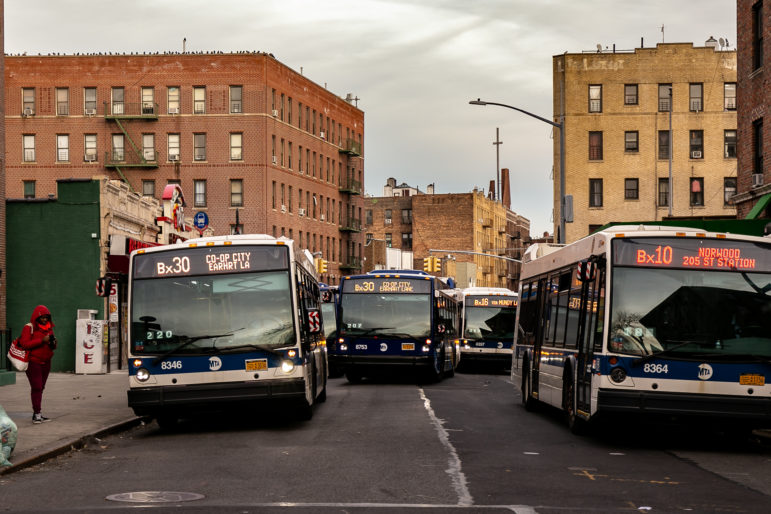
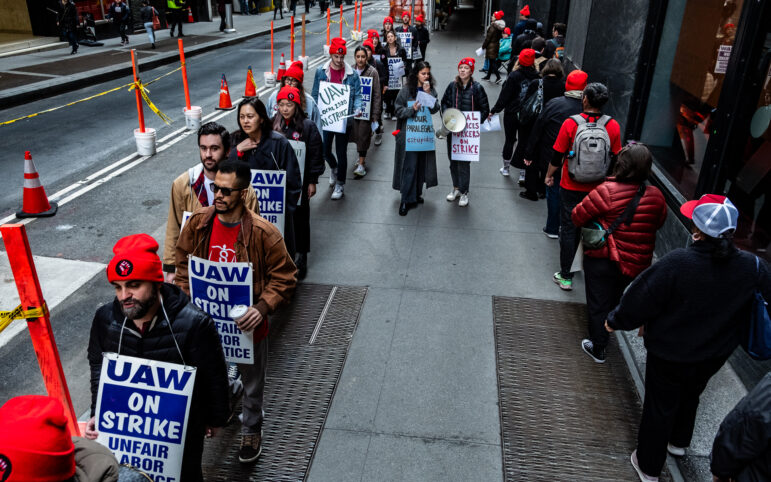
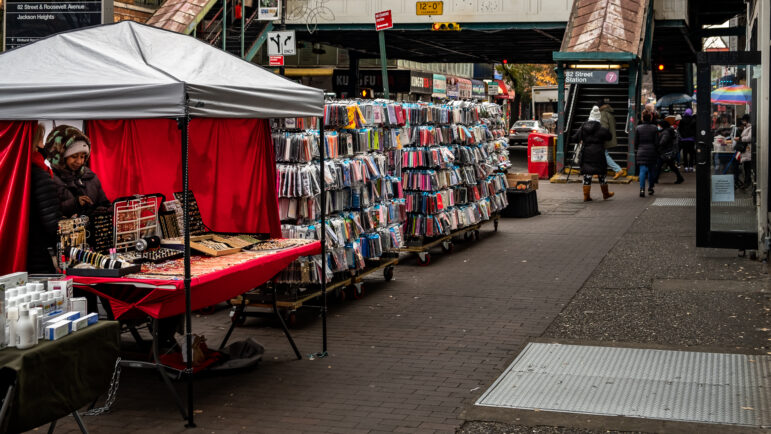
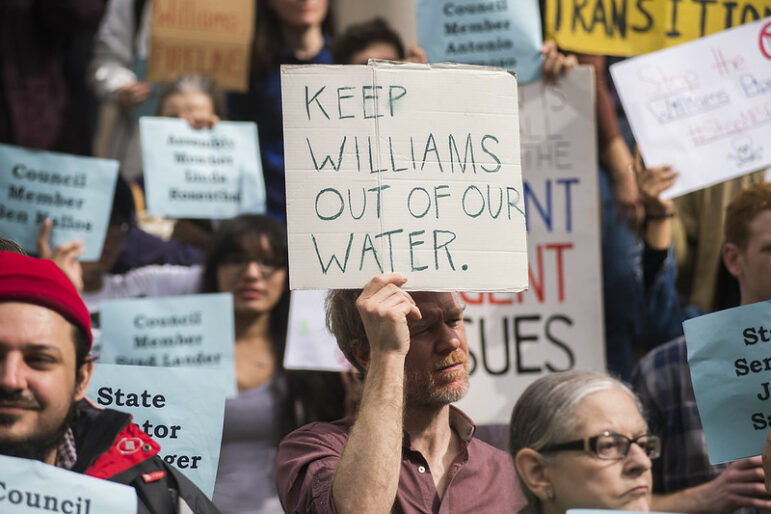



14 thoughts on “City Council Votes to Raise Value of Housing Vouchers for Homeless New Yorkers”
NYC doesn’t have an endless supply of tax dollars for this ill-advised program which is an insult to everyone in the city working hard to pay their rent or mortgage. NYC is heading towards bankruptcy, but this time it will be much much worse than in 1975.
Yeah and if we learned anything from the “bankruptcy” of NYC in 1975 (and the housing crisis of 2008), it’s that the overall economy depends on the solvency of NYC. What timeline are you living in? Inflation? Sure. But capital flows in many directions, and those that direct it know a whole lot more than you do about finance and governance.
Its always someine with something negative to say.what you rather have homeless people camped in your block just so you can save a few bucks on ur taxes.?you pay taxes no matter what.shut up.this is good for the city
Clueless politicians…you really think you can throw money at this problem. I dont care how much rent money the City housing vouchers offer….the City is unprofessional, unreliable and crooked with their promises and business dealings. What good is promised rent money if you never receive it or it gets cut off suddenly without communication to the landlord and through no fault of the landlord. City utilizes housing service but you have to chase them down to get paid..no thanks I and many other people do not conduct business with people like that so why would I tolerate that sort of behavior from NYC. City can offer all the bonus money they want ( landlord will never benefit from it .. lawyers will) and rent voucher increase but City doesn’t meet my rental criteria for tenant…truthful, honest, income verifiable, professional, communicative and reliable.
What do you care? If you’re a good landlord with halfway decent lodgings who doesn’t depend on tenants to support your livelihood then you won’t have to participate in this program at all. And if you’re a bad landlord who needs the income from your rental property to live, maybe you do need the City’s help.
It’s more than just ‘save a few bucks on ur taxes’. The city is slowing approaching a financial crisis due to out of control spending.
Your taxes pay for shelters so if it can be spent on a housing voucher why not? You rather people be on the street? These families are working 2-3 jobs and are unable to afford rent and other necessities. You are not realistic about what is going on in your city, you are talking about how you feel off stereotypes and maybe even racism. Check your privilege!!!
I’m a “living witness ” to this outrageous nightmare called homelessness. I was hurt at work,slipped and fell on a steel beam. I continued working 8yrs. until I required surgery. The recuperation time afterwards was 8 months flat on my back barely getting up to go to the restroom. Needless to say I was unable to return to work. The disability benefits were not enough to make rent and our bills. After months of trying we loss our apartment. I’ve been married 47 years our children are grown. So we were put in an adult shelter and bounced around quite often. In a shelter in Brooklyn, we had an argument about things missing from our room,the management and others had keys, which prompted staff to evict us from that shelter and not be allowed to go to any other shelter as a couple. From 2015 to the present we are still not together. I have a cityfheps voucher, she’s in an SRO. We can’t be together. She can visit or I can visit but no overnights For the city to raise the amount of the voucher my wife and I could spend our last few years together.
It’s a disgrace for someone to think that this increase isn’t a good thing. The people with the most to say have no idea what they are talking about being that they have never been in this situation. If they ever were to be involved with homelessness oh,how they would change their minds. Yes people do work for their homes and property but if you can’t work what then,what then?
I have worked in a shelter for over 15 years and I see both sides to this. I can understand the need for housing vouchers as some people need assistance in finding and keeping an apartment. The flip side is that I am also a daughter to a home owner/landlord. It is not fair to landlords when the City does not pay their portion of the rent on the voucher. Landlords still have bills to pay in order to provide the tenants with hot water, building electricity and other services they are required to maintain, not to mention their mortgage. Landlords should not have to come out of pocket for any building expense as this is the reason there is rent. The building should pay for everything but if some tenants are not paying their rent, including the voucher holders and the City, the landlord still has to provide these services. Some voucher holders have to pay 30% of their income towards their rent. The remaining voucher holders usually have no out of pocket expense because Public Assistance is picking up half and the City the rest. I have also seen landlords evicting tenants with vouchers after their lease is up just to get another family in the apartment and scoop up the years rent that they will receive. I have seen these tenants that are residing in the shelters and most of them are able to work and pay their rent, they just need to get in control of their spending habits. To the previous comment about the couple that are separated in different shelters. If you have grown children, they should have been your first resort to turn to. I have grown children and I know that my son’ would never see me in a shelter. Their doors would always be open to me, their mother. I was also in an on the job accident and it put me out of work for 2 years. During that time, I cut down on all unnecessary spending and had to make due with Workers Compensation as my only income for the 2 years that I was out of work as well as my savings and credit cards. I maintained my apartment without any government assistance, because nothing is free, and my son and family members also helped me. I was in that apartment for 27 years before I turned it over to my youngest son and moved out. So when there is a will there is a way without turning to government for assistance. The problem now is the will isn’t there anymore for some people. There are some people who truly need the assistance, there are some who are beyond assistance and then there are those who take advantage of the system.
The “will”?. You’ve been blessed with a family who is in the position to help you. Everyone doesn’t have that… wish you all would stick to speaking for yourself. Seriously.
When is the increased going to be set and vouchers are going to increased
Good dialogue . Both sides have valid points.
Homelessness is a very real part of life, being a D V survivor,my kids and I can testify to this very sad and emotional trauma called homelessness. It’s a feeling sudden shock, hopelessness, shame, despair, hunger, people scorned us for how we looked, lack of clothes, being looked down upon, like what’s transpiring here, especially when you are on the street with your 2 teenager children, shelters were full so we had to accommodate how you could on the streets, for months. I did what was thought when I was a child, which is to PRAY without ceasing, so i called out to God and guess what he stepped and help helped us.
PRAYERS seriously change EVERYTHING !!!!!!!!!!!! It did for me and my kids, after those nightmare times on the streets of East New York. I have never stopped praying, try it call out to God He is REAL and He WILL answer you. He came through for me and mine and He surely WILL come through for you also, regardless of how bad your situation is nothing is impossible for God,
My children returned to school, I got a job, went to medical classes, got a job, so did my children and I will never stop praying and thanking God for his goodness.
Be Blessed, will be praying for you all………. Roma.
This is all a bunch of bull shankers as I am not allowed to have anything as I can not even get my State Identification. Project renewal ruined my teeth and I am not eligible for anything as I can not get assistance unless I have my N.Y. State I.D. which I can not get without my Social Security Card which I can not get without my New York State I.D. and Attorneys refuse to talk with me because I am poor.
So all of this stuff helps those who don’t need assistance as they have money and phones which they can afford. I am so poor that I can not get a free phone so take this crap and sell it to someone else as I am poor and this City could care less about me and bunch of other as we are honestly poor. We need assistance but this City and this State have literally told me I’m better off either being dead or in a foreign country. Thanks Madam Governor, N.Y. D.M.V. and Mayor Adams for your lack of care.
I am begging for legal assistance as this country is refusing to up hold its own morals and ethics as we are giving illegal refugees – shipped in from Texas – free housing and new State Identification with no [proof of what they say, while people such as me who are born residents of these United State of America, with Birth Certificates to prove it are denied any housing other than Homeless Shelters ; we are denied the right to have State I.D. even though we can prove all we say is true ; Where is my assistance and why are you giving it to illegal foreigners who, by law, are supposed to be deported back to their country? When you can answer this then we can talk. Otherwise, I ask that you please look at who you are talking about and realize how this is helping the rich achieve what they do not need help with as poor people such as me are not being allowed to have anything you talk about.